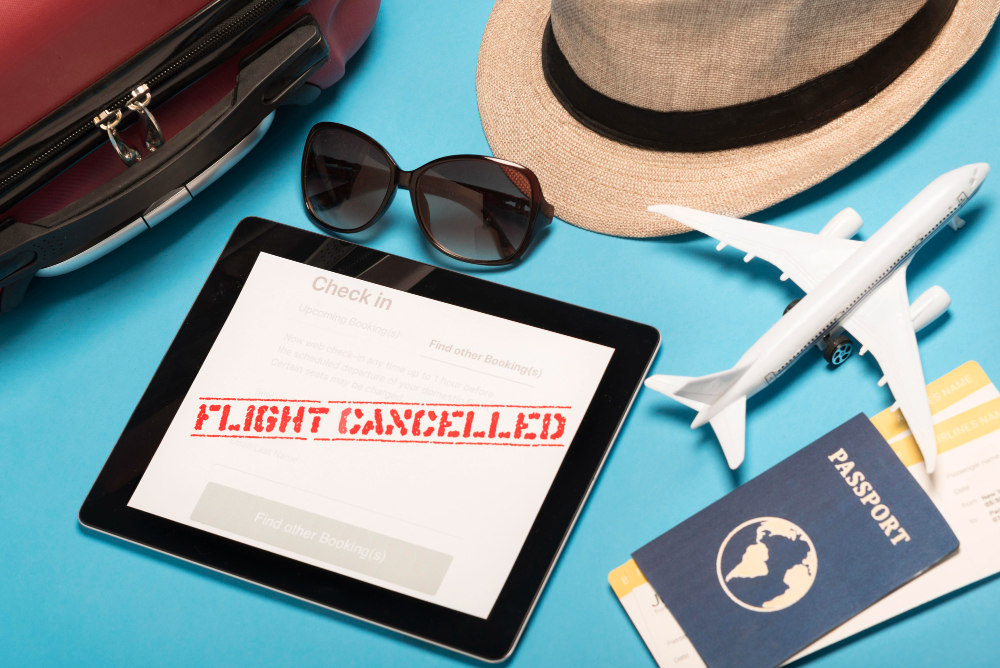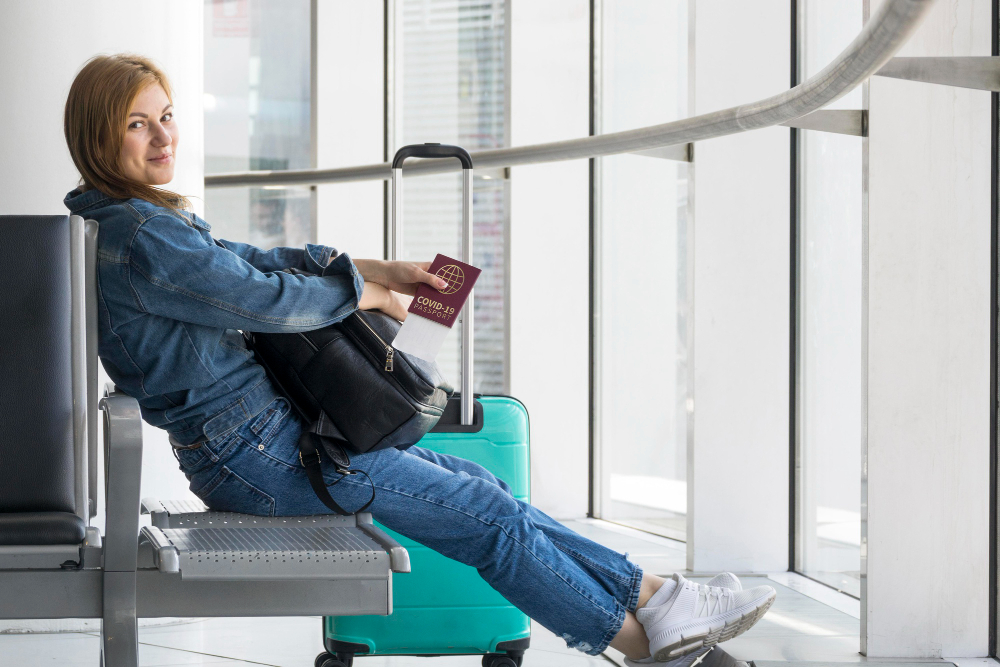Navigate flight disruptions with confidence using these essential steps.

A cancelled or delayed flight can derail your travel plans and create unwanted stress, but staying calm and knowing what to do can make all the difference. From understanding your rights to finding alternative solutions, being proactive is key.
These nine crucial steps will help you handle the situation efficiently, minimize frustration, and get back on track as quickly as possible. With the right approach, you can turn travel setbacks into manageable challenges.
1. Stay calm and gather information about the delay or cancellation.

The first step in managing a flight disruption is to stay calm and seek accurate information. Check the airline’s app or website for updates on the situation and estimated timing. Listen for announcements or ask gate agents directly for details. Knowing whether the delay is due to weather, mechanical issues, or staffing shortages can help you determine your next move. A calm demeanor ensures clearer thinking and better communication with airline staff, setting the tone for an effective resolution.
2. Contact your airline’s customer service for assistance.

When your flight is cancelled or delayed, reaching out to your airline’s customer service can expedite the resolution process. Call the airline directly, use their chat feature, or connect through their app. Be polite yet assertive while explaining your situation. Ask about rebooking options, alternate flights, or compensation policies. Acting quickly increases your chances of securing a suitable alternative, especially during peak travel times when seats fill up fast. Persistence and clear communication are your allies in this process.
3. Know your rights regarding compensation or rebooking.

Understanding your passenger rights is crucial when your flight is cancelled or delayed. In the U.S., airlines are required to refund your ticket if they cannot provide a comparable alternative flight. In the European Union, Regulation EC 261/2004 entitles passengers to compensation for significant delays or cancellations caused by the airline. Familiarize yourself with these regulations to ensure you receive what you’re owed. Knowing your rights empowers you to negotiate confidently and avoid unnecessary expenses.
4. Explore alternative flight options to reach your destination.

If your original flight is cancelled, look for other routes to your destination. Check the airline’s website or app for available seats on later flights, or ask customer service about rerouting through different cities. Consider flights with partner airlines, which might have open seats. If you find a viable option on your own, present it to the airline for quicker rebooking. Flexibility with layovers and departure times can significantly increase your chances of reaching your destination promptly.
5. Check for hotel or meal vouchers if you’re stuck overnight.

If your flight disruption requires an overnight stay, ask the airline if they provide hotel or meal vouchers. Many airlines offer assistance in cases of cancellations or lengthy delays, especially when they are responsible. Contact gate agents or customer service to confirm what’s available and how to redeem it. Keep receipts for any expenses incurred in case reimbursement is possible. Securing accommodations and meals ensures you remain comfortable while waiting for your rescheduled flight.
6. Notify your accommodations or transportation providers of the delay.

Delays or cancellations can affect other parts of your travel plans, such as hotel reservations, car rentals, or tours. Contact your accommodation to inform them of your new arrival time and avoid penalties for no-shows. Many providers are understanding and flexible in these situations. If you’ve booked transportation, reschedule pick-ups or rentals accordingly. Being proactive with these arrangements prevents added stress and ensures a smoother transition once you arrive at your destination.
7. Take advantage of your travel insurance for added protection.

If you have travel insurance, now is the time to use it. Many policies cover expenses related to cancelled or delayed flights, such as accommodation, meals, and rebooking fees. Review your policy details to understand what’s covered and how to file a claim. Contact your insurance provider as soon as possible to start the process. Travel insurance acts as a safety net, helping you recover unexpected costs and providing peace of mind during disruptions.
8. Stay updated on flight changes through multiple channels.

While waiting for updates on your flight, use multiple sources to stay informed. Monitor the airline’s app, sign up for text alerts, and check departure boards at the airport. Gate agents may also provide additional information. Staying informed allows you to act quickly if new options or rebookings become available. Real-time updates ensure you don’t miss any critical announcements and help you make timely decisions to adjust your plans effectively.
9. Keep essentials in your carry-on for emergencies.

Having key items in your carry-on can make a significant difference during a flight delay or cancellation. Pack snacks, water, chargers, toiletries, and a change of clothes to stay comfortable while you wait. Include any necessary medications and important travel documents. A well-prepared carry-on ensures you can handle unexpected disruptions with ease, reducing stress and helping you focus on resolving the situation. Being ready for anything keeps you one step ahead in challenging travel scenarios.
